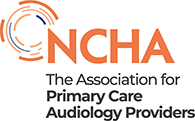Members can apply to join our medical malpractice insurance scheme for peace of mind in the event of a clinical negligence claim. One major advantage of insuring with us is that we are a not-for-profit membership body. That means we pool risk and test the market to deliver you exceptional value, and because we do not make any profit on insurance, you get the best price. That is why when in the past our insurance price reduced, we could pass this on to our members.
Our model also means that members can choose to join us and add insurance later. We believe this is the fairest and most transparent way to support all our members as insurance income does not cross-subsidise other work. It also helps our members see what they are paying for, allowing them to shop around for the best value.
To help you make an informed choice and learn more about:
- Our medical malpractice and products liability insurance
- Risks and liabilities
- When you need to have medical malpractice insurance
- When you might not need to buy your own medical malpractice insurance
- Practice owners and vicarious liability - keeping it simple
- Claims occurring v claims made
- Other insurance
Our medical malpractice and products liability insurance
Our medical malpractice insurance meets the requirements of HCPC and NHS contracts to hold appropriate medical malpractice insurance. It will cover you on
- a claims occurring basis, indemnifying you for up to £10 million per occurrence.
It will also cover you for
- product liability insurance specifically related to the provision of the hearing care services you provide
Cover includes the cost of legally defending the claim, claims management and compensation associated with the claim.
As a NCHA member, we will help you pick the cover you need, and you will also get legal advice and support whenever you need it. We promise you will never feel alone or unsupported if you face a claim.
A claim is a request for compensation as a result of something that somebody believes has gone wrong regarding a patient's hearing care. The claim should be made in writing, but it can come from the patient, family member or other representatives - such as a solicitor.
A clinical negligence claim is not the same as a complaint. Learn more about the regulatory support we offer in the event of a complaintHearing care in the UK is very safe, but even the most diligent and expert hearing care providers can make mistakes. In such cases, clinical negligence claims can be costly, and that is why you should have appropriate medical malpractice insurance in place irrespective of legal requirements to do so.
When you need to have medical malpractice insurance
Hearing care providers in the UK are required to have appropriate medical malpractice insurance in place so that, in the case of a clinical negligence claim, the costs of the claim and any damages can be paid. For example, having appropriate insurance in place to protect patients is a requirement for HCPC registration for individual registrants and for all providers of NHS care.
While you should take all steps necessary to minimise the risk of an adverse event, mistakes can and do happen. However, making a mistake does not necessarily amount to being liable for a claim.
To prove a claim - the claimant must show you owed them a duty of care, that there was a breach of that duty of care and, as a result, they suffered physical or psychological harm or both which would otherwise have been avoided.
In a practical sense, this means there must be a breach of duty of care and causation. Put simply, you would have to have acted in a manner which a reasonable or responsible provider in the same discipline would not have and as a result caused harm to the patient.
If you have been notified of a claim or you believe there is a risk of a claim, you should contact us immediately and we will support you throughout the process. As a NCHA member you are never alone.When you might not need to buy your medical malpractice insurance
Individual audiologists, clinical scientists and nurse practitioners do not always need their own medical malpractice insurance.
For example, in many cases, your employer's insurance will provide you with the medical malpractice insurance you need as a HCPC registrant and to indemnify your patients against harm.
Make sure you do not pay for insurance you do not need or for double cover. Read on for information to help you get the right cover for you.
If you only work for an NHS organisation providing NHS care, you should check with your employer before taking out individual medical malpractice insurance for claims because your employer's insurance should cover you.
NHS bodies already pay for this insurance. For example, in November 2019, every NHS hospital in England was part of NHS Resolution's Clinical Negligence Scheme for Trusts (CNST).
This means you might be able to save thousands of pounds over your career by not buying medical malpractice insurance that you do not need.If you are employed and do not carry out any locum/independent contractor work, you should check with your employer or the NCHA before taking out individual medical malpractice insurance. This is because you may already be covered and do not need to pay for additional, separate cover yourself.
For example, NCHA offers medical malpractice insurance to practice owners which covers all their HCPC registrants and the staff working under their supervision on an unnamed basis. If the only practices you work at are part of the NCHA scheme, you do not need to buy separate medical malpractice insurance as an HCPC registrant, because you are already covered.
So, you might be able to save thousands of pounds over your career by not buying medical malpractice insurance that you do not need.Practice owners and vicarious liability - keeping it simple
As a practice owner, you can benefit from complete peace of mind knowing that our medical malpractice insurance covers your organisation and all your HCPC registered staff and people working under their supervision on an unnamed basis.You make an annual declaration of the number of full-time equivalent (FTE) HCPC registrants in your business - you don't have to tell us names or who comes and goes during the year.
You can also add other hearing care professionals, including hearing care assistants and nurse practitioners. If you want to add non-HCPC registrants we check their training and qualifications and scope of practice, and once they are approved to join the scheme you have the same level of cover and peace of mind.
FTE stands for full-time equivalent, and that is how we price your practice membership and insurance cover. Imagine you have two HCPC registrants on staff who together work five days between them. That amounts to one FTE under our policy, so you pay for one, not two people. You can see the savings add up.
We know how confusing other membership and insurance adverts can be and not everybody follows our 'keep it simple' approach.
That is why as a practice owner it is essential to ensure you understand the insurance cover you are paying for, including the risk to you and your organisation relating to complex vicarious liability clauses and other hidden costs which might mean you cannot rely on your employees' insurance.
For example, if you are paying for your employees' insurance, your organisation might find that if one of your audiologists leaves and you later face a clinical negligence claim you are not covered.
We believe you deserve better. That is why at NCHA we do not have complex vicarious liability clauses or other hidden costs. You join us as a provider organisation, you complete your application and, once approved, you are covered.
Claims occurring v claims made
We want to make sure that you know the difference between claims occurring and claims-made insurance policies, so you can make an informed choice about the cover that is right for you.
Claims occurring basis
This type of insurance policy covers a claim that happened ('occurred') during the policy period. It does not matter when the actual claim is made, which can be years later. The cover is provided under insurance contracts in perpetuity.
For example, if you were on our claims occurring insurance policy in 2013, you would be covered in the future in the event of claim linked to an incident in 2013. So, if a patient you tested in 2013 made a claim against you in 2023, you would still be covered by us regardless of whether you still have our insurance in 2023.
There are many advantages to this sort of policy. For example, when you retire or stop practising, you do not have to continue paying for medical malpractice insurance, buy separate 'run-off cover' or hope it is included in your package without any complex T&Cs.
If you are switching from a policy which operates on a 'claims made' basis to a 'claims occurring' policy, you should contact us for more detailed advice. This is because your current insurer might not automatically provide you with run-off cover and you might have to purchase this separately. If you do, we can provide a quote for this cover.
Claims made basis
This type of insurance covers you only for claims received ('made') during the policy period.
Using the same example as above. If a patient made a claim against you in 2023 relating to a hearing test you performed in 2013, then you would need to rely on your 2023 'claims made' policy being in place for cover. Put simply, on a claims-made policy you need insurance in place whenever the claim is made.
One disadvantage of this sort of policy is that when you retire or stop practising, you will have to make sure you have appropriate 'run-off cover' in place. That means you will need to make sure you are insured against events that occurred in the past after you stop practising.
Some schemes might claim to include the cost of run-off cover within your current premium, but most will charge you an extra premium when you leave the scheme. You should also be aware that schemes which claim to include run-off cover as part of a claims-made policy might have significant restrictions in place. E.g. they might not offer organisations run-off cover even if the organisation is paying employees' premiums. That is why you must know what you are paying for.
Contact us by emailing [email protected] if you have any questions about the difference between 'claims made' and 'claims occurring'.
Other insurance
In addition to NCHA's insurance scheme, hearing care provider organisations will also need to have other more common insurance policies in place. These might include but are not limited to:
- Buildings and contents insurance
- Business interruption insurance
- Employers' liability insurance - a legal requirement if you employ any staff
- Public liability insurance.
This year, we will be helping members access new insurance products and services. We will do this in a transparent way. For example, we will ensure every pound saved is passed on to you directly, so we will not take any commission on any new products. That is because our goal is to help you succeed, and that includes keeping your cost and our cost low.

 Your hearing and aural health
Your hearing and aural health  Commissioners and Policymakers
Commissioners and Policymakers  Member support and guidance
Member support and guidance News and views
News and views
 Hearing map
Hearing map
